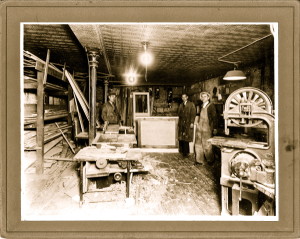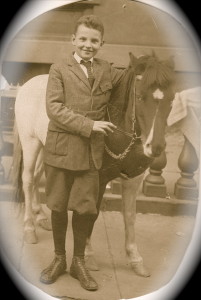 Over the last twenty or so years, I’ve been diagnosed with PTSD, three times. Though I was never sexually abused, my father who suffered from PTSD himself, beat me and my brothers, and made growing up into healthy adults, almost impossible. His experiences during the Second World War, screwed up his brain, and like so many other soldiers in every war that has ever been fought, my father brought his “invisible wounds” home with him. At the time, veterans such as himself, were said to have, “Shell Shock.” There was no treatment for what would later be called, Post Traumatic Stress Disorder. Those warriors just had to get over it by themselves.
Over the last twenty or so years, I’ve been diagnosed with PTSD, three times. Though I was never sexually abused, my father who suffered from PTSD himself, beat me and my brothers, and made growing up into healthy adults, almost impossible. His experiences during the Second World War, screwed up his brain, and like so many other soldiers in every war that has ever been fought, my father brought his “invisible wounds” home with him. At the time, veterans such as himself, were said to have, “Shell Shock.” There was no treatment for what would later be called, Post Traumatic Stress Disorder. Those warriors just had to get over it by themselves.
My mother, was abused as a child herself, and later by her husband, my father. She rarely, if ever laid a finger on me, yet her psychological abuse of me made an already difficult childhood, even more challenging. She was also loving, and at times an ally in my never ending struggles with my father. But she’d also threaten me with, “Just wait till your father comes home! He’ll get you to behave.” I was left to pray that she’d forget what I had done to anger her. Mostly though, I simply had to face the music when Dad came home from work. When he turned physical and brought out the leather horse crop he sometimes used to beat me, my mother would completely disappear, never protecting me from who we all, including Mom, called King Kong. Her behavior was confusing to say the least, and her constant betrayals did not help me to build trust or confidence in her.
I’ve struggled with extreme anxiety, depression, and flashbacks most of my life. When I became my mother’s caretaker during the final seven years of her life, my symptoms grew worse. She lived with me, for most of that time, and because I was there, I became bore the brunt of her sadness and anger. We were constantly at war with one another, making my intention to help her to be as comfortable as possible through her waning years, impossible.
I knew that I needed help after my mother died, and for the third time, I was told I was struggling with PTSD. I finally let go of my denial, and sought treatment with a therapist whose specialty was dealing with Trauma. With her help and a village of other supporters, including my husband, I began a slow recovery, pulling together the lost and broken pieces of my life. Writing my memoir about those difficult times has been the act that has most helped me to celebrate who I am and have become. I look forward to it being published soon.
I’m happy to say that eight years later, I feel like a new person. Though I’ll never be perfect, I no longer struggle every day with anxiety. When depression tiptoes in, I know who it is, and it makes a hasty retreat. Yes, I can still react to certain triggers, but now I usually catch myself before I react and cause extensive damage to my own ego and those around me.
Living with the likes of PTSD has an extremely steep learning curve. Just a few weeks ago, I learned an important lesson about dealing with those nasty triggers. I was sitting in the dentist’s chair, being fitted with a new mouthguard which I need to use at night, in order to keep myself from grinding my own teeth away. It was a new product, much harder and stiffer than the mouthguard that I had been using. My dentist, who is the kindest and best of them all, was struggling to get it seated properly. Suddenly out of nowhere, I had a panic attack, and started struggling against him. I was in tears and for a few moments didn’t understand what was happening.
We took a break from the fitting and in a few minutes I realized that I had been reacting to some unremembered trigger event. I confessed to the doctor, that I have a history of abuse and have struggled with Post Traumatic Stress Disorder. I had never considered telling him about it. What does dental care and PTSD have to do with each other? Having been a military dentist in Iraq before opening his practice here, he knew exactly what I was talking about.
At the time, I had to admit that there is still a bit a shame involved in owning my PTSD. But it is nothing to be ashamed of. Nothing I did caused it. And just because it isn’t on the list of ailments we’re supposed to check off when we see a new caretaker, doesn’t mean it should be ignored. True self-care is learning to accept ourselves as we are and honoring our own minds and bodies.
Finding my center amidst the panic, I learned that it is important to let caregivers of any kind know about the problem I have. My general practitioner has known all along, but being upfront about PTSD with everyone is important.
Is there anything in your life that you’re ashamed of owning?





